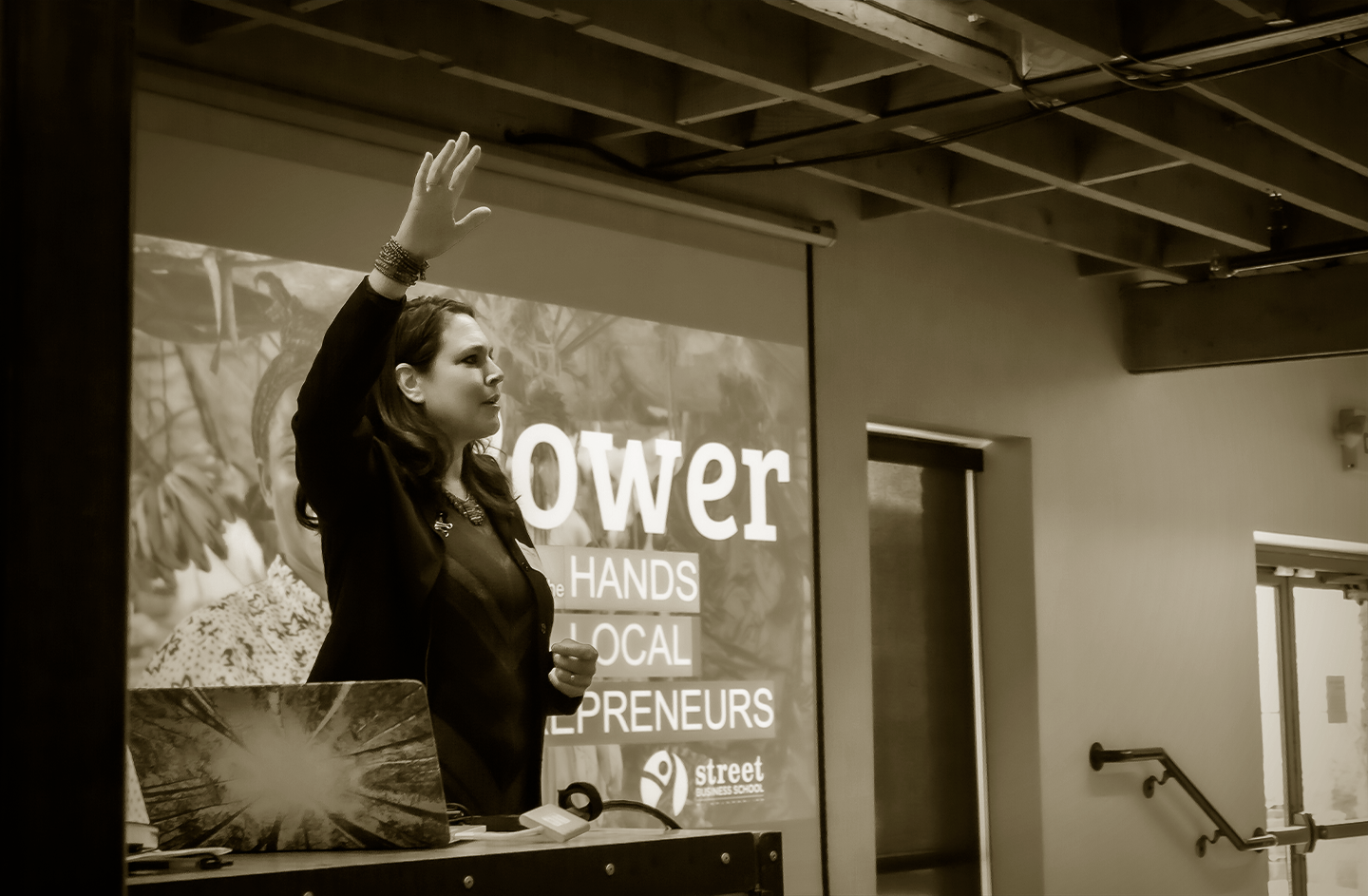As a communication researcher invested in community-based research, I was especially excited to be able to attend the Posner Center Symposium’s session, “Putting Power in the Hands of Local Entrepreneurs” presented by Devin Hibbard, Founder & CEO of Street Business School. I was particularly interested in what insight Hibbard might share that could be applied for use in conducting mutually-beneficial research with communities.
 Hibbard began her talk with her underlying philosophy for ending poverty: that we must collaborate. In laboring together, rather than enforcing the competition ethos found in business, we work towards interdependency. It is with this notion of power-sharing that Hibbard and several others started the organization BeadforLife, which connects women in Uganda with export markets for their handmade beaded jewelry. A core component of the non-profit’s work was training the jewelry makers to become small scale entrepreneurs who opened a different type of business before graduating. In an effort to reach more people, they started training women who did not make jewelry and just focused on opening small businesses, and initiative that eventually became Street Business School.
Hibbard began her talk with her underlying philosophy for ending poverty: that we must collaborate. In laboring together, rather than enforcing the competition ethos found in business, we work towards interdependency. It is with this notion of power-sharing that Hibbard and several others started the organization BeadforLife, which connects women in Uganda with export markets for their handmade beaded jewelry. A core component of the non-profit’s work was training the jewelry makers to become small scale entrepreneurs who opened a different type of business before graduating. In an effort to reach more people, they started training women who did not make jewelry and just focused on opening small businesses, and initiative that eventually became Street Business School.
As the SBS team began to see significant results out of the school, they determined to spread the model globally. Here is where humility comes in. Many entrepreneurs would view franchising as an opportunity to open up many carbon copy businesses. Hibbard’s method of social franchising relies on collaboration. SBS includes an eight-module training course, with key areas identified that can be customized by other organizations to fit local needs and resources. Through this innovative model, other organizations in many different countries are able to offer their own Street Business Schools.
This model of franchising had my wheels turning about community-based research, particularly as the franchising might apply to a research approach called communication activism for social justice (CAR). CAR requires that a communication scholar apply their communication expertise in a research project with affected communities. A scholar, with the community, must somehow intervene in the injustice impacting the community.
A facet CAR could grow is dispersing the results of the intervention. CAR has made a difference with its interventions. For instance, John McHale made a documentary of a man on death-row who was later exonerated. Yet, unfortunately, instead of diffusing to other populations, these interventions often run their course rather than being taken up and applied to other contexts. CAR scholars should focus on sharing their successful interventions to other community-based organizations.
Hibbard concluded her talk with some impressive numbers. Not only did her franchising model save her organization a lot of money, but, more importantly, Street Business School has trained other organizations, who will collectively reach over 210,000 people within four years. Data shows that on average, SBS entrepreneurs increase their income by 211% creating true transformation in their lives, and the lives of their families. I look forward to sharing the franchising notion of interventions with my fellow communication researchers and hope it can expand the positive effect of CAR.
AUTHOR BIO
Emily Loker is a PhD student at the University of Colorado Boulder where she studies communication activism pedagogy at the undergraduate level.
